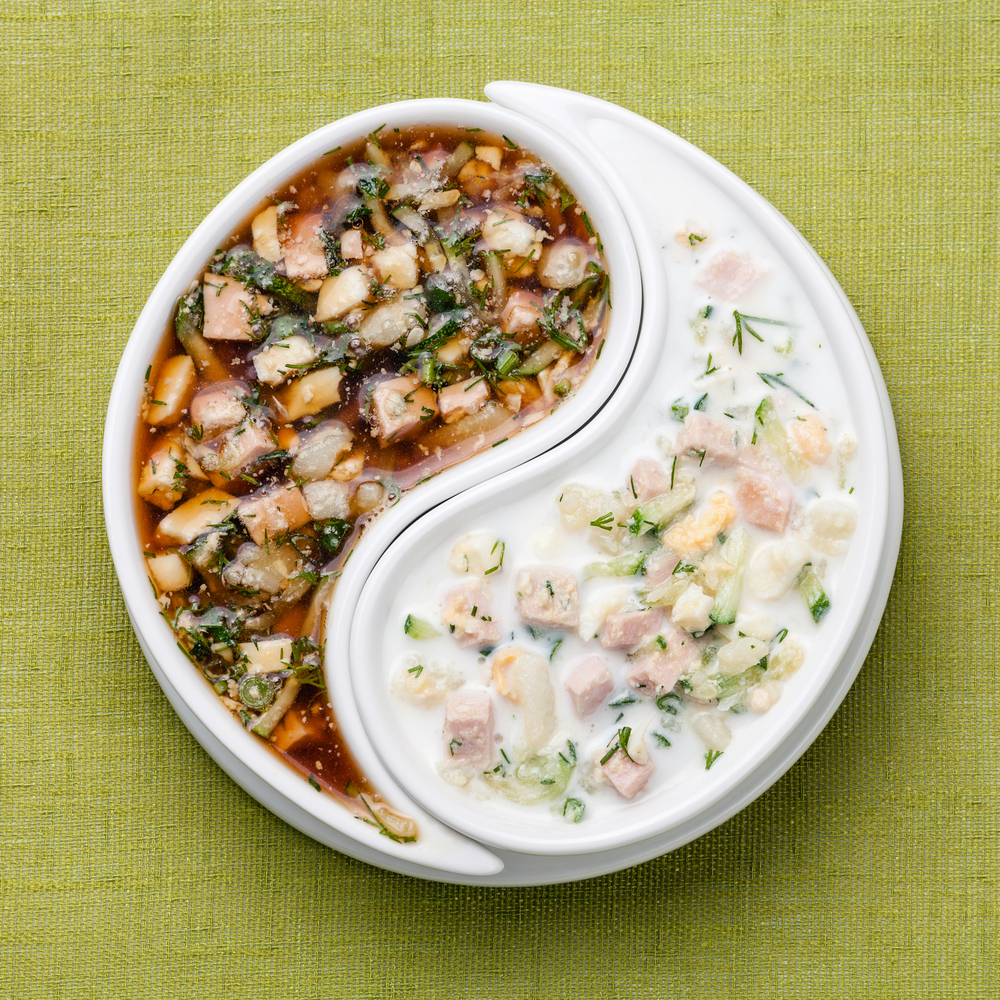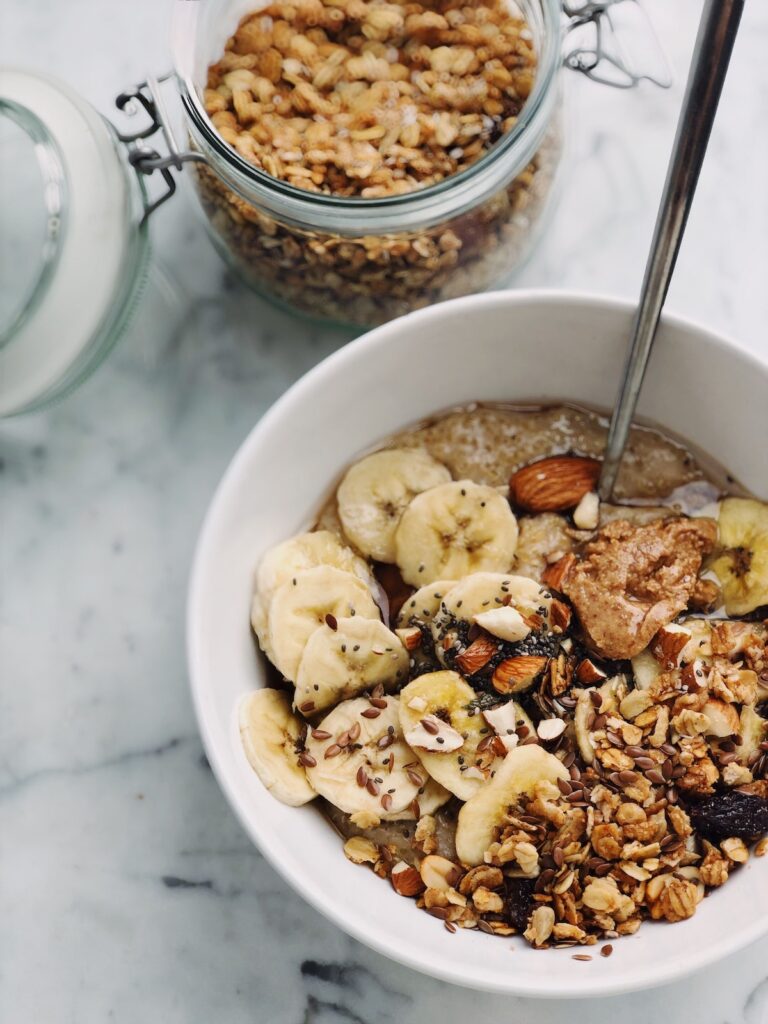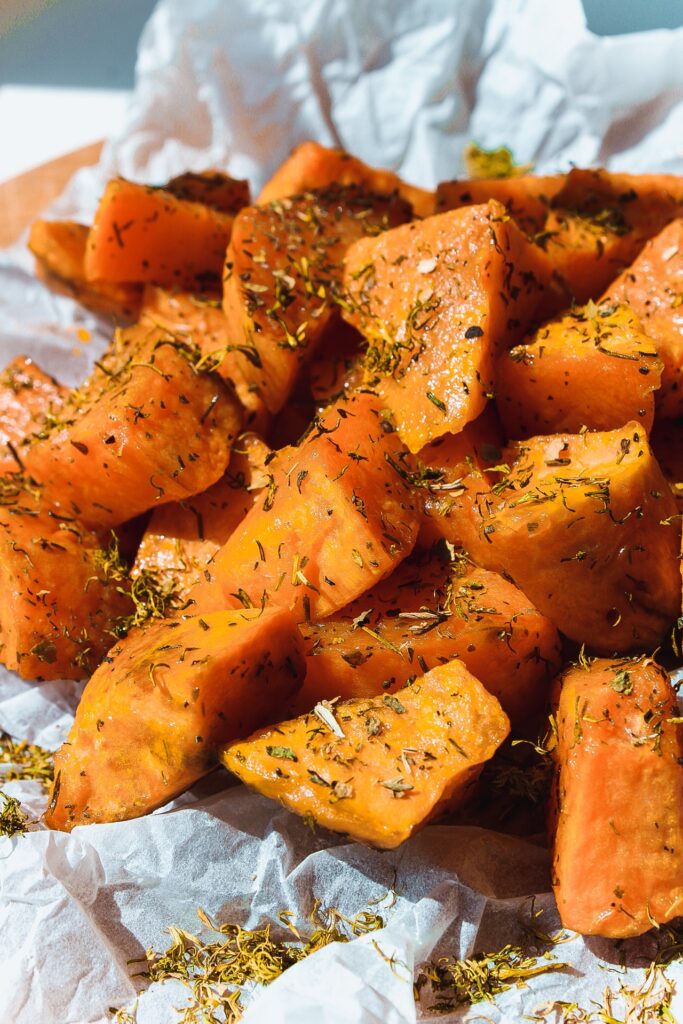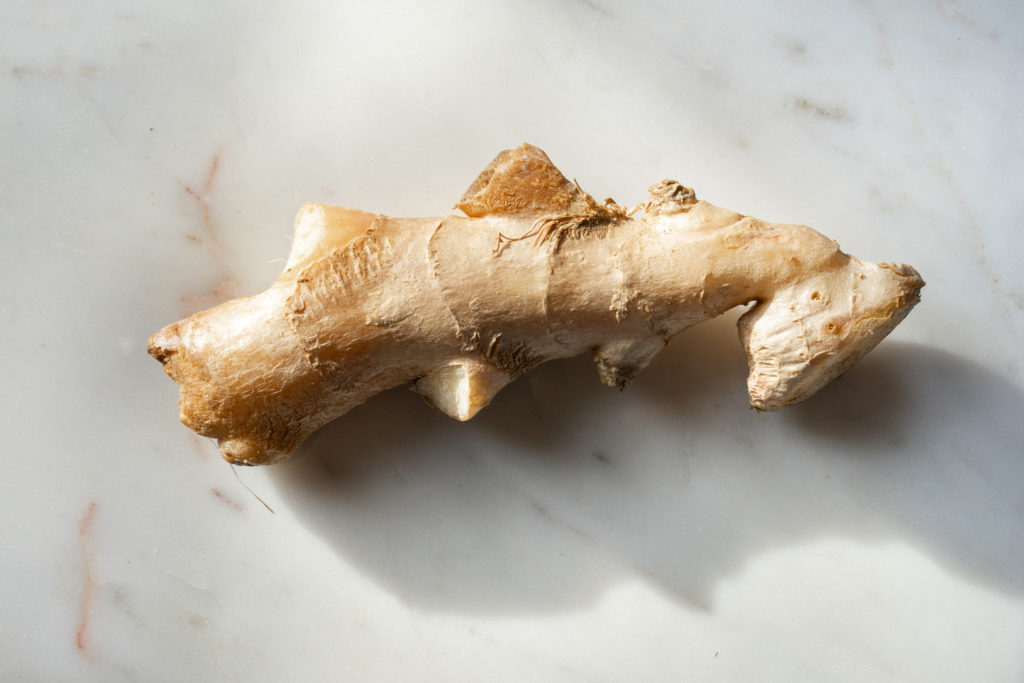FOOD AS MEDICINE: THE NATURES AND FLAVORS OF FOOD ACCORDING TO TCM
And How They Can Help You

More than 2,000 years ago in China, a book called “The Yellow Emperor’s Classic of Medicine” or Huang Di Nei Jing was a sort of medical textbook that, among other things, laid out the five natures and flavors of food. Though that might not sound very important, the book wound up being foundational for modern-day Traditional Chinese Medicine.
That’s because food is an incredibly important part of TCM. Some foods can change the levels of Yin and Yang in our bodies, while others can directly stimulate certain organs and bodily systems. Since TCM is all about seeking balance in our bodies and minds, knowing the right foods to eat to shift that balance is key to finding physical and mental harmony.
How TCM Thinks About Food
The Natures of Food
When it comes to the energy of foods, foods are judged by how they influence the temperature of your body. There are 5 different temperatures in TCM:
- Hot
- Warm
- Neutral
- Cool
- Cold
 Generally, food that has cooling or cold properties contains a lot of Yin energy. In the Chinese tradition, Yin energy is related to the moon, the earth, women, coldness, darkness, and rest. Because Yin and Yang are both equal and opposite, foods with warming or hot natures tend to have Yang energy. Contrasting with Yin, Yang is all about the sun, brightness, fire, and masculinity. As you might have guessed, neutral foods are just that–neutral. They land somewhere in the middle of Yin and Yang and are balancing.
Generally, food that has cooling or cold properties contains a lot of Yin energy. In the Chinese tradition, Yin energy is related to the moon, the earth, women, coldness, darkness, and rest. Because Yin and Yang are both equal and opposite, foods with warming or hot natures tend to have Yang energy. Contrasting with Yin, Yang is all about the sun, brightness, fire, and masculinity. As you might have guessed, neutral foods are just that–neutral. They land somewhere in the middle of Yin and Yang and are balancing.
Traditional Chinese Medicine practitioners combine different foods and herbs to help bring balance and harmony to their patients. Because the goal of TCM is physical and mental balance, disorders and illnesses are caused by things like excess heat or excess dampness that throw things off balance. TCM practitioners can recommend certain foods and herbs to restore harmony.
For instance, if a patient complained to their TCM practitioner about joint pain, the practitioner might diagnose the person with excess coldness. To help even things out, the practitioner might advise their patient to eat foods with warming or hot energies like ginger, cinnamon, or chives.
But eating the right foods is important all the time, not just when you’re sick. According to TCM, we tend to naturally be either warm or cool. To keep ourselves balanced 365 days a year, it’s important to know your own nature and eat the appropriate foods. For example, if you have a warm or hot nature you should try to eat more cooling and neutral foods while keeping warming foods to a minimum.
Hot and Warm Foods
Foods with warming energy tend to be plants that take a long time to grow, but most meat is warming as well. According to TCM, warming foods help dry things out and help boost energy and circulation. Warming foods usually help disorders that have symptoms like diarrhea and bloating, sore joints, low energy, and cold body parts (like hands or feet).
Some warming foods you can find in your local grocery store are:
- Cabbage

- Onions
- Garlic
- Pumpkin
- Apricot
- Chives
- Scallions
- Cherries
- Guava
- Nectarines
- Coconut
- Avocado
- Cooked or Dried Fruits
- Oats
- Seeds and Nuts
- Most meats, including chicken and lamb
- Chocolate
- Cayenne pepper
- Cinnamon
- Cloves
- Dry ginger
- Basil
- Rosemary
Neutral Foods
Neutral foods tend to have balanced amounts of Yin and Yang in them, so they’re fine for anyone to eat. They won’t influence your internal nature/temperature too much in either direction.
- Corn

- Sweet potato
- Potato
- Carrot
- Beetroot
- Peanut
- Edamame
- Cashews
- Plums
- Grapes
- Lemon
- Poultry like pork, duck, and goose
- Beef
- Milk
- Sugar
Cool and Cold Foods
Foods that have a cooling nature help to get rid of excess heat and dryness. They can also clear out toxins and calm the blood. If you notice any of these symptoms, you may need to eat more cooling foods:
- Excess thirst
- Constipation
- Heartburn
- Red skin/complexion
- Headaches
- Racing heart
- Cold sores
Some cooling foods that are easy to find in Western grocery stores are:
- Lettuce
- Celery
- Cucumber
- Broccoli
- Tomatoes
- Mushrooms
- Bananas
- Pears
- Oranges
- Kiwi
- Apples
- Wheat
- Tofu
- Yogurt
- Seaweed
- Fresh ginger
- Mint
- Cilantro
- Cheese
The 5 Flavors of Food
You don’t have to practice TCM to know that the flavor of a food matters. That’s why we all have favorite foods and foods we wouldn’t touch with a 10-foot pole!
But in traditional Chinese medicine, the flavor of a food is more important than how you perceive your food to taste. Flavor is closely related to nutrition and the meridians (or energy pathways) of the body. Depending on the flavor of the food and the meridian it’s related to, foods can affect different parts of the body.
Each flavor also corresponds to an element and an organ–but it’s important to remember that in TCM, words like “Liver” or “Kidney” don’t just refer to the literal organs but the general area of the body and system it corresponds to.
Bitter
Foods with a bitter flavor tend to be drying and draining, so it’s ideal for getting rid of excess heat and dampness. Bitterness is mostly associated with the heart, but it also can help improve digestion. It works well for people with deficiencies and coldness because it’s related to the element of fire.
Some bitter foods according to TCM are:
- Wine

- Turnips
- Gingko
- Seaweed
- Bergamot
- Asparagus
- Coffee
Sweet
Sweet foods are related to the Earth and they travel along the meridian that leads to the stomach and spleen. Sweet foods are good for circulation and moistness, but if you eat too much of them you might end up with too much phlegm and heat.
But what many westerners consider sweet is not the same thing that TCM would classify as sweet. According to TCM, grains and meats are sweet because they are mild and nourishing. Some other sweet foods are:
- Honey
- Dates
- Taro
- Sweet potato
- Potato
- Pumpkin
- Carrot
- Rice
- Wheat
- Corn
- Sugar cane
- Milk
- Apple
- Grapes
Spicy
Spicy foods, sometimes called acrid or pungent, are related to the lungs and small intestine. Great for circulation and stimulating appetite, spicy foods help clear out any toxins and germs from our lungs to stop us from getting sick. But it’s important not to eat too much spicy food, as that can actually overstimulate your body and drain your Qi energy.
Some spicy foods are:
- Fresh ginger

- Onions
- Sichuan peppercorn
- Garlic
- Celery
- Spearmint
- Sweet peppers
- Cinnamon
- Wine
Salty
Salty foods are great for dealing with stagnation, especially that having to do with the kidney and bladder. Salty foods nourish your blood and help with digestion because they draw things downward. If you have excess moisture, salty foods are a good option for you. A little bit of salty food can help improve your blood, but too much will actually make it stagnant so don’t go overboard.
Some salty foods according to TCM are:
- Barley
- Seaweed
- Kelp
- Shrimp
- Oyster
- Crab
- Pork
- Ham
- Duck
Sour
Sour foods go straight to the liver and gallbladder. They’re great for helping your body absorb any leaking conditions like sweating, diarrhea, and bleeding. They also activate the blood and help deal with stagnation.
In TCM, the liver is very important when it comes to emotional health. When the liver is disordered, you might feel overly emotional and irritated. Sour foods are supposed to help with that by calming the body and regulating the liver.
Some sour foods to try are:
- Lemon
- Tomatoes
- Pineapple
- Apple
- Strawberry
- Pears
- Oranges
- Peaches
- Olives
- Plums
- Mango
- Vinegar
In Traditional Chinese Medicine, food really can help to heal you or hurt you. So while there’s no need to plan out every meal according to the flavors and natures of the food you eat, it’s a good idea to know more about what foods are warming, cooling, sour, salty, etc. That way you can self-medicate through the kitchen when you’re not feeling your best. Bon appetit!
Newer
Why Am I So Gassy? Answers From The East and West
Older
Hey Overthinker! Get Rid Of Your Racing Thoughts with Eastern Medicine
Comments (0)
Leave a reply
You must be logged in to post a comment.




